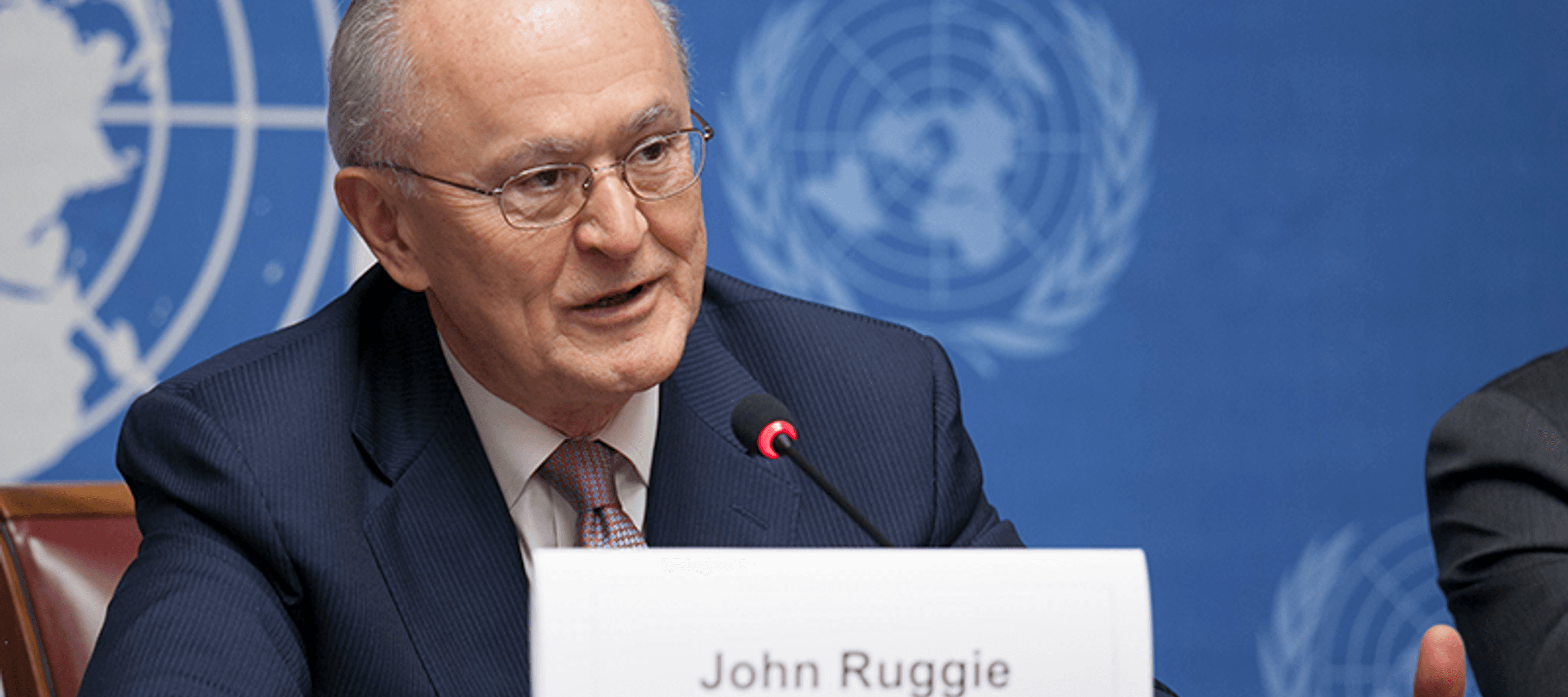IHRB pays tribute to John Ruggie
19 September 2021

The world has lost a visionary thinker, inspiring diplomat, and generous human being. Those of us who have been fortunate enough to know John Ruggie have lost a dear friend and ally. The world is fairer and more equitable because of his work and impact - progress that only John could have forged at the time that he did. John’s spirit will forever be the foundation of the movement to make human rights part of everyday business, and we are all indebted to him for giving us the tools to continue that effort.
IHRB’s founding Chair and Patron, Mary Robinson states:
“I was deeply saddened to learn of the passing of my friend John Ruggie. His rare abilities to lead and connect the worlds of academia, policy, business, and civil society, all to advance the causes of human rights and sustainable development, were an inspiration to me and many others. John’s dedication to dialogue, learning and cooperation achieved so much. His example of principled leadership will continue to guide us.”
IHRB’s current chair, Margot Wallstrom reflects:
“John’s work has left a lasting mark in the world for generations to come. The UN Guiding Principles on Business and Human Rights are the bedrock for the business and human rights movement not just at the United Nations, but also at the OECD, European Union and increasingly within national governments.”
IHRB’s CEO, John Morrison, adds:
“We miss John as a friend and mentor. He guided our work and built many of the foundations. John was a valuable chair and patron to IHRB.”
IHRB’s Co-Chairs of Trustees, Ron Popper and Deanna Kemp, state:
“IHRB will strive to keep John’s legacy alive in all of our work. He will be deeply missed by all staff, trustees and the wider business and human rights movement.”
About Professor John Ruggie
Professor John Gerard Ruggie was the Berthold Beitz Research Professor in Human Rights and International Affairs at the Kennedy School of Government at Harvard University, and an Affiliated Professor in International Legal Studies at Harvard Law School. From 1997 to 2001, Ruggie served as United Nations Assistant Secretary-General for Strategic Planning, a post created specifically for him by then Secretary-General Kofi Annan.
He was one of the architects of the United Nations Global Compact as well as of the Millennium Development Goals, the precursor of the Sustainable Development Goals. From 2005-11 he served as the Secretary General’s Special Representative for Business and Human Rights and drafted the UN Guiding Principles on Business and Human Rights. He was the chair of the board of the non-profit organisation Shift, and also a Board member of the Arabesque Group, an ESG data provider, in addition to serving as IHRB's Chair from 2012-2016 and then as its Patron until his passing.



